Honda Civic Vs Volkswagen Jetta: Which Compact is Right for You?
For 2022, the Honda Civic came out with a redesign of the exterior and interior. The perennial favorite now sports a cleaner, less controversial design than the previous generation, with a larger wheelbase and corresponding price increase to offset the upgrade.
The Volkswagen Jetta also receives a minor refresh for the year, but the changes are minor and mostly cosmetic. A new engine borrowed from the Taos now finds its way into the lineup, and with a starting price of just $21,360 (including destination), it drives the bargain play against the competition.
Get a Quote on a New Honda Civic or Volkswagen JettaDoes the new Jetta offer enough to lure potential buyers away from the obvious choice? It’s the Honda Civic versus Volkswagen Jetta in a head-to-head comparison of features and capabilities.
Cabin Space
Honda Civic: Inside either the sedan or hatchback configuration, you’ll find 39.3 inches (998 mm) of headroom in the front, or 37.6 inches (956 mm) with a moonroof equipped. Rear headroom is 37.1 inches (942 mm) for all Civics. Front passengers are allotted 42.3 inches (1,074 mm) of legroom and 54.3 inches (1,380 mm) of hip space, while rear seat passengers get 37.4 inches (950 mm) of legroom and 48.9 inches (1,243 mm) of hip room.
Volkswagen Jetta: Front row passengers get up to 38.5 inches (979 mm) of headroom in the Jetta, 41.1 inches (1,045 mm) of legroom, and 53 inches (1,347 mm) of hip room. For those in the back, there is 37.2 inches (945 mm) of headroom, 37.4 inches (949 mm) of legroom, and 51.4 inches (1,306 mm) of hip room.
Bottom Line: No matter how you configure each car, you’ll get more space in the front row with the Civic. In the back, the Jetta is nearly identical to the Civic in most dimensions but has an extra 2.5 inches of hip room for backseat passengers in a fully packed car.
Powertrains
Honda Civic: The Civic lineup spans three engine choices. The LX and Sport trims in either sedan or hatchback guise runs on a 2.0-liter four-cylinder, which pushes out 158 horsepower with 138 lb-ft of torque. Going up to the EX or Touring sedan or EX-L and Sport Touring hatchback gets you a 1.5-liter four-cylinder turbo rated for 180 hp and 177 lb-ft of torque. All non-Si Civics come with a CVT, but the Sport and Sport Touring hatchback are available with a six-speed manual.
SEE ALSO: 2022 Honda Civic Review: First DriveThe Civic Si sports the 1.5-liter four-cylinder turbo but at a more powerful tune, putting out 200 hp and 192 lb-ft of torque through the six-speed manual with rev-matching.
Volkswagen Jetta: Volkswagen keeps it simple by using just a single engine throughout the regular Jetta lineup. The 1.5-liter four-cylinder turbo is good for 158 hp and 184 lb-ft of torque, driven through the front wheels. On S and Sport trims, you have a choice of either a six-speed manual as well as the eight-speed automatic with Tiptronic. The Automatic is standard on the SE and SEL.
The Jetta GLI comes with a 2.0-liter turbocharged four-cylinder, rated for 225 hp and 258 lb-ft of torque. A choice of a six-speed manual or seven-speed dual-clutch automatic drives the front wheels.
Bottom Line: The singular offering from Jetta may be torquey, but is otherwise a bit lackluster. The turbo engines on the Civic are gems, but some may wish for a manual-equipped sedan that disappeared with this year’s revision. The GLI packs a decently bigger punch than the Si, however.
SEE ALSO: Hyundai Elantra N Line vs Volkswagen Jetta GLI Comparison: Healthy CompetitionFuel Economy
Honda Civic: Given the multitude of possible configurations for the Civic, there is a corresponding wide range of fuel economy ratings. The most efficient of the bunch is the EX Sedan equipped with the 1.5L engine and LL-CVT transmission, rated for 33/42/36 mpg (7.1/5.6/6.5 L/100km) in the city, highway, and combined. In hatchback form, the EX-L is also the thriftiest, with ratings of 31/39/35 mpg (7.6/6.0/6.7 L/100km).
As to be expected, the sporty Si comes in with the lowest possible numbers for a Civic, rated at 27/37/31 MPG (8.7/6.4/7.6 L/100km) for city, highway, and combined.
Volkswagen Jetta: Manually-equipped S and Sport versions of the Jetta are rated for 29 mpg (8.1 L/100km) in the city, 43 mpg (5.5 L/100km) on the highway, for a combined 34 mpg (6.9 L/100km). Switch to the automatic and the numbers become 31/41/35 mpg (7.6/5.7/6.7 L/100km) for city, highway, and combined. SE and SEL trims come in at 29/40/33 mpg (8.1/5.9/7.1 L/100km).
The manual GLI sees a rating of 26/37/30 MPG (9.0/6.4/7.8 L/100km), while opting for the DSG gets 1 less mpg on the highway.
Bottom Line: Regardless of where you’re shopping in the lineup of either car, the numbers are generally neck and neck between the Civic and Jetta.
Cargo and Towing
Honda Civic: The LX, Sport, and EX trims of the Civic Sedan can haul up to 14.8 cubic feet (419 liters) of cargo, but the Touring and all Si models get a reduced 14.4 cubic feet (408 L) of space due to the subwoofer in the back. All Civic Hatchback trims will let you cram up to 24.5 cubic feet (694 L) of things in the back behind the seats.
Volkswagen Jetta: Inside the trunk of the Jetta, you’ll find 14.1 cubic feet of space for groceries or luggage. Towing capacity is not rated for the Jetta, so don’t expect to use it to drag that 70-foot yacht.
Bottom Line: It’s hard to beat the spacious Civic in cargo space, and the Hatchback configuration makes hauling flat-pack furniture a breeze.
SEE ALSO: Honda Civic vs Kia Forte Comparison: Compact Sedan Face-OffSafety
Honda Civic: The Honda Sensing Safety set of technologies is found across the current line up, featuring a comprehensive array of features that help keep you safe on the road. Collision Mitigation Braking System, Road Departure Mitigation System, Lane Keeping Assist, Lane Departure, and Traffic Sign Recognition are all standard on every Civic. Adaptive Cruise Control with Low-Speed Follow and Traffic Jam Assist is available with some configurations. Blind Spot Information System is standard on all EX/EX-L, Touring/Sport Touring, and Si models. Cross Traffic Monitor is included with all Si and Touring/Sport Touring Civics.
Volkswagen Jetta: Even on the most fundamental trim level, the Jetta comes equipped Blind Spot Monitor and Rear Traffic Alert. The S and Sport models can be optioned with Forward Collision Warning, Autonomous Emergency Braking, and Adaptive Cruise Control, which all come as standard on SE and SEL models. Travel Assist (adaptive cruise control and lane-keeping) also comes standard on the SE and SEL as part of the IQ.DRIVE safety and driver assistance suite.
Bottom Line: You’ll get most of the same active and passive safety features found on the Civic by going for a Jetta, but it’ll be with less money taken out of your account.
Tech and Features
Honda Civic: Both sedan and hatchback variations on the Civic are similarly equipped by trim levels. The LX in either body style comes standard with a 160-watt 4-speaker audio system, 7.0-inch touchscreen for multimedia, Apple CarPlay/Android Auto, and automatic climate control. The EX/EX-L trim adds dual-zone climate control with seat heating for the front row, and a 180-watt 8-speaker sound system that’s also standard on the Sport trim. The top-of-the-line Touring and Sport Touring trims unlock power-adjustable seats in the front, leather seats all-around, wireless phone charging, wireless Apple CarPlay/Android Auto, a Bose 12-speaker sound system with subwoofer, and larger infotainment and driver information screens.
Si versions of the Civic get more equipment from the get-go in exchange for the higher starting price. All Si models receive wireless CarPlay/Android Auto, a moonroof, sport seats, a Bose 12-speaker sound system, and a larger 9.0-inch touchscreen.
Volkswagen Jetta: All Jettas come equipped with a 6.5-inch infotainment touchscreen with bluetooth and App-Connect (Apple CarPlay and Android Auto). The SE trim adds features like a power-adjustable driver’s seat, dual-zone climate control, heated front seats, and keyless access to its list of standard features. Once you reach the SEL trim, you’ll get an upgraded 8.0-inch touchscreen with navigation, leather seating, ventilated front seats, wireless phone charger, and a BeatsAudio sound system.
Bottom Line: The Jetta lineup offers very pared-down trim levels that are not found on the Civic, in order to cut down on the starting price. If a no-frills car that’ll get you from A to B is what makes sense for the bank account, VW provides the solution. On the other end of the price spectrum, a fully dialed-in Jetta SEL comes in at just a hair less than the equivalent Touring/Sport Touring trim, without missing out on too many features.
Styling
Honda Civic: For 2022, the bold, angular design approach of the previous Civic is replaced by one that’s more cohesive with the Honda family of vehicles. The angry, creased jowls of the previous Civic and its black “eyebrow” trim on top of the headlights are now all tidied up in a more conventional layout. Gone are the boomerang tail lights, and the strange modified version of a Hofmeister Kink found on the rear windows has gotten even stranger.
Volkswagen Jetta: We’ve had the current design of the Jetta for a few years now. For 2022, it receives a mild exterior design refresh. New front and rear bumpers now start and end the Jetta, paired with a new grille and an updated Volkswagen badge.
Bottom Line: Even with the minor update on the Jetta, the new Civic looks just a bit more modern and premium in comparison.
Pricing
Honda Civic: The Civic LX sedan starts from $23,645 (including $1,095 destination). Sport, EX, and Touring examples of the sedan will cost $25,045, $26,645, and $30,245 respectively. The sporty Civic Si starts from $28,595, and you have the option to add the “HPT” designation and swap to a set of sticky performance tires for an extra $200.
Hatchback versions of the Civic will set you back $24,645, $25,845, $28,345, $31,145 for the LX, Sport, EX-L, and Sport Touring trim levels.
Volkswagen Jetta: VW starts off the Jetta lineup with the S trim, priced at $21,360 (including $995 destination charge). The Sport trim with a Cross Differential System and sporty exterior bits brings the price up to $22,260. The automatic-only SE and SEL are priced at $25,090 and $29,090.
SEE ALSO: 2022 Volkswagen Jetta First Drive ReviewThe sporty GLI trim comes in at $32,290.
Bottom Line: Volkswagen keeps the Jetta in buyers’ minds by pricing it attractively. If you’ve got a yearning to mash the gas pedal though, the GLI is quite a bit pricier than the equivalent Civic Si.
Verdict
The German compact used to represent the ceiling of the segment, for its refined performance on the road and its attention to detail in construction and quality. That sentiment has slowly changed over the years, and while the Jetta is still a quality option, it just isn’t quite the shining star it once was.
The Civic had already been the reigning champ as of its last rendition, and with the new redesign the best has gotten even better. With a more subdued design on the outside, it’s back to being the safe choice for a compact family car, albeit now a pricier one.
With the roles now reversed, the Volkswagen Jetta now bets on giving you more car for less money than the competing Honda. Even without the cachet of the Civic, the Jetta represents a solid bang for the buck for anyone looking for a compact sedan.
Become an AutoGuide insider. Get the latest from the automotive world first by subscribing to our newsletter here.
More by Harry Zhou



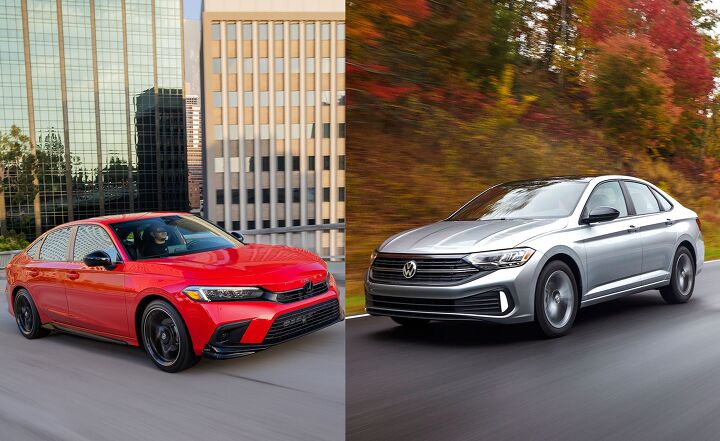
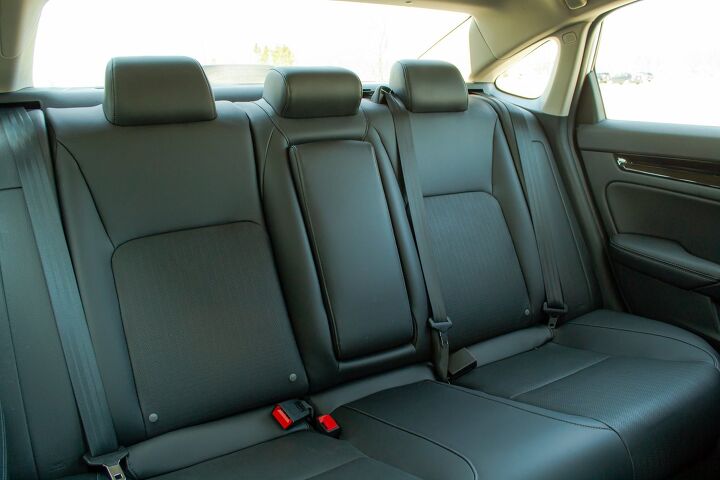




















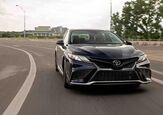





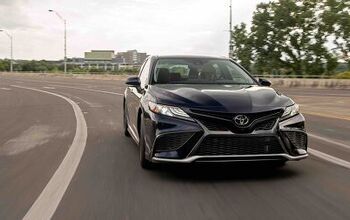


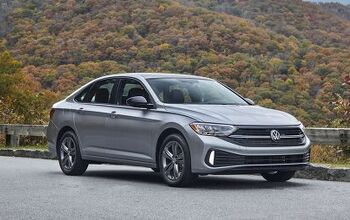
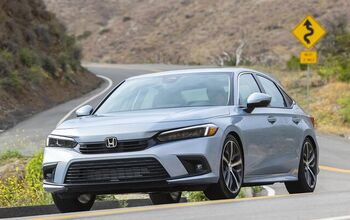

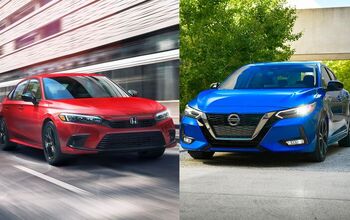
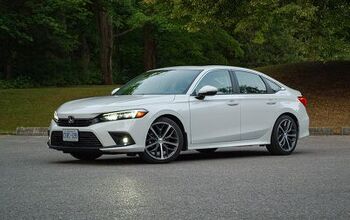
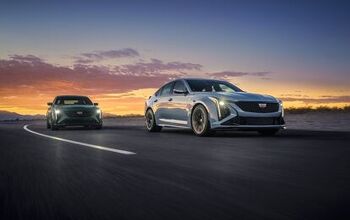

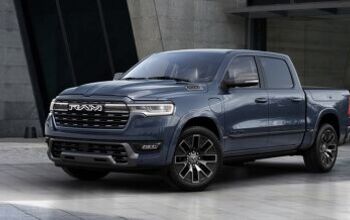
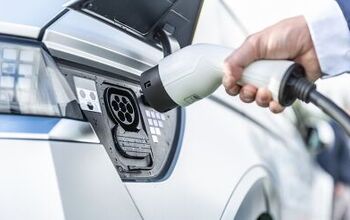


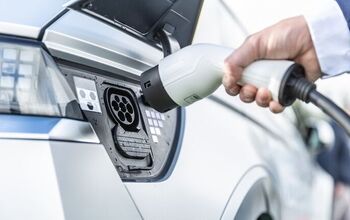
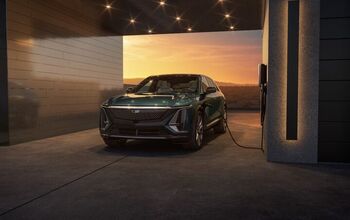
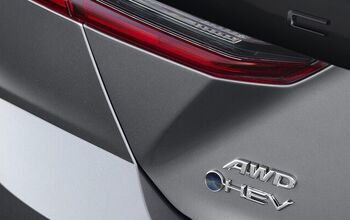

Comments
Join the conversation
This whole comparison could have been done behind a desk... What about how they drive?